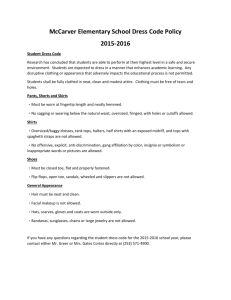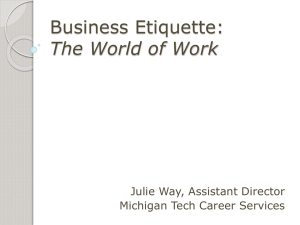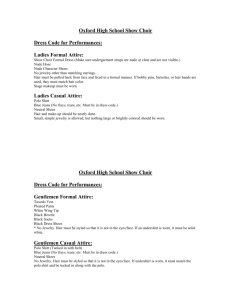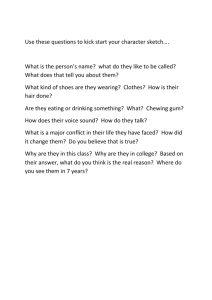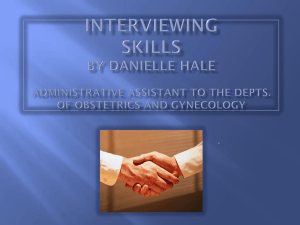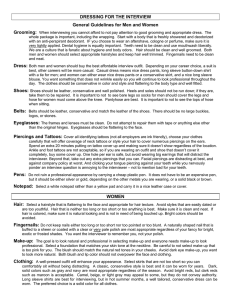PROFESSIONAL DRESS Tips for Success: APPEARANCE
advertisement
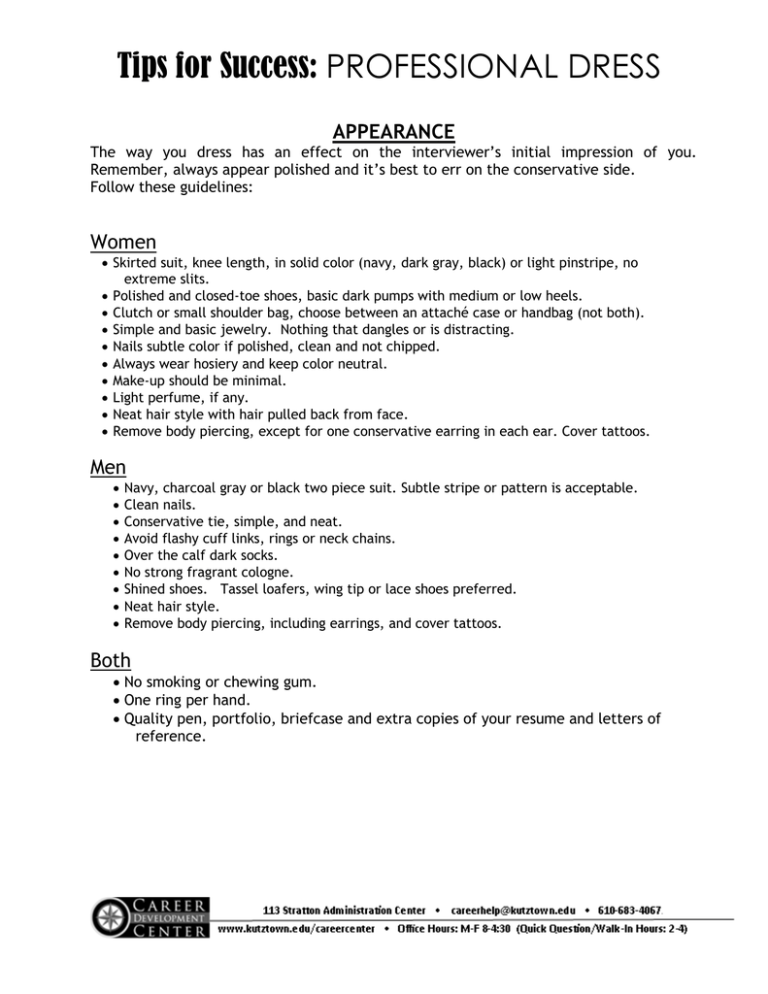
Tips for Success: PROFESSIONAL DRESS APPEARANCE The way you dress has an effect on the interviewer’s initial impression of you. Remember, always appear polished and it’s best to err on the conservative side. Follow these guidelines: Women Skirted suit, knee length, in solid color (navy, dark gray, black) or light pinstripe, no extreme slits. Polished and closed-toe shoes, basic dark pumps with medium or low heels. Clutch or small shoulder bag, choose between an attaché case or handbag (not both). Simple and basic jewelry. Nothing that dangles or is distracting. Nails subtle color if polished, clean and not chipped. Always wear hosiery and keep color neutral. Make-up should be minimal. Light perfume, if any. Neat hair style with hair pulled back from face. Remove body piercing, except for one conservative earring in each ear. Cover tattoos. Men Navy, charcoal gray or black two piece suit. Subtle stripe or pattern is acceptable. Clean nails. Conservative tie, simple, and neat. Avoid flashy cuff links, rings or neck chains. Over the calf dark socks. No strong fragrant cologne. Shined shoes. Tassel loafers, wing tip or lace shoes preferred. Neat hair style. Remove body piercing, including earrings, and cover tattoos. Both No smoking or chewing gum. One ring per hand. Quality pen, portfolio, briefcase and extra copies of your resume and letters of reference. TIPS FOR SUCCESS: INTERVIEWING DO'S DON'TS Know yourself (skills, abilities, goals, interests, values, strengths/weaknesses, etc.) Don't be late. Know your potential employer (position you're interviewing for, primary products, services, etc.) Don't ask about other applicants. Don't request salary information. Read employer literature. Don't smoke before the interview. Look professional. Don't chew gum/eat mints, etc. Be on time. (Arrive at the site 15 minutes early to check your appearance, compose yourself, etc.) Don't slouch. Be clear, concise, and to the point. Send a thank-you follow-up. Get correct names and titles. Bring appropriate materials (resume, transcript, etc.) in a portfolio. Share your success stories. Don't criticize previous employers, professors, etc. Don't dress inappropriately. (You must dress to fit in.) Don't dominate the conversation. Don't invade the interviewer's physical space. Don't make excuses. (Give reasons instead.) Find out when a decision is expected to be made. Don't tell the interviewer what he/she doesn't need to know, such as personal information. Give a firm handshake. Don't ramble. (Make your point and stop talking.) Maintain eye contact. Don't try to be what you're not. Prepare several insightful questions. Don't interrupt. Be positive & enthusiastic. Don't make assumptions. Listen carefully. Don't apologize. Market yourself. Don't ask obvious or inappropriate questions (about vacation, sick leave, etc.) Think before you answer. Give concrete examples to support your points. Be assertive, not aggressive. Don't be aggressive. (Be assertive.) Don't rely on other people's words or thoughts. (Use your own.)
